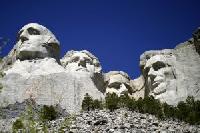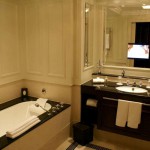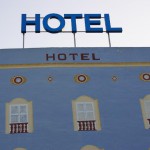MOUNT RUSHMORE NATIONAL MEMORIAL , S.D. (5/19/09) — When you get to be a national icon of a certain age, you need a little help looking smooth and youthful. Mount Rushmore National Memorial, which turns 68 this year, undergoes a facelift every year.
Instead of Botox, however, crews from the National Park Service use big tubes of silicone sealant, advanced fracture-mapping techniques and other technology to preserve the granite faces of George Washington, Thomas Jefferson, Teddy Roosevelt and Abraham Lincoln.
And soon the National Park Service expects to add a new dimension to its preservation of the mountain carving. Within a year, officials hope to laser scan and digitally map the entire surface of the mountain carving as well as the Hall of Records, the unfinished chamber carved in the canyon wall behind the sculpture.
Duane Bubac, Director of Cultural Resources and Facilities at Mount Rushmore National Memorial, said the mapping project will give the National Park Service detailed information about the features of Mount Rushmore. And the data could later be used to create virtual, up-close tours of Mount Rushmore.
In the past, Mount Rushmore sculpture maintenance was mostly a once-a-year event. Each fall, rope-access crews descended from the top of the memorial to inspect the granite and caulk the surface cracks. The news media was invited to shoot photos and report on the process.
The fall maintenance work still takes place every September, Bubac said, but it’s now part of a much larger, year-around effort to monitor and preserve Mount Rushmore National Memorial.
„The process involves a lot more than sealing cracks now,“ Bubac said.
Under the National Park Service long-range preservation plan, crews are fracture-mapping and crack-mapping the granite surface. They are also removing vegetation, cleaning and sealing cracks, removing hazard rocks and testing the next generation of sealant materials.
Mount Rushmore’s biggest threat is water. It seeps into cracks, freezes and expands. That freeze-thaw cycle could eventually degrade the surface of the granite. Dirt and vegetation could also be a threat. If dirt can accumulate in a small hollow, it gives opportunist weeds, bushes or trees the foothold they need to take root.
In 1999 RE/SPEC, a Rapid City engineering firm, installed concealed sensors at various places on the granite surface. The sensors measure the normal expansion and contraction of the rock as it responds to the heat and cold of day and night, winter and summer. Movements range from 1/500th to 1/1,000th of an inch – no threat to the integrity of a 60-foot-tall mountain carving. But by building a long-term record of the natural rock movement, the National Park Service will be able to detect and respond to unnatural movements if they ever occur.
Fast Facts:
- Nearly 3 million people a year visit Mount Rushmore National Memorial in South Dakota’s Black Hills .
- Sculptor Gutzon Borglum’s mountain carving was completed in 1941. In the early days, crews sealed cracks with a mixture of white lead, linseed oil and crushed granite — Borglum’s own recipe. Now they use silicone and other advanced sealants.
- Mount Rushmore’s granite formed about 1.6 billion years ago when a mass of molten rock began to rise up from deep within the earth’s crust. It mixed with the older sandstone and shale, making a kaleidoscope of rock surfaces.
- The erosion rate of Mount Rushmore National Memorial is estimated by geologists at 1 inch every 10,000 years. It should be around for many years to come.
- George Washington’s head is 60 feet tall. He has an 18-foot smile, and his nose is 21 feet from bridge to tip.






